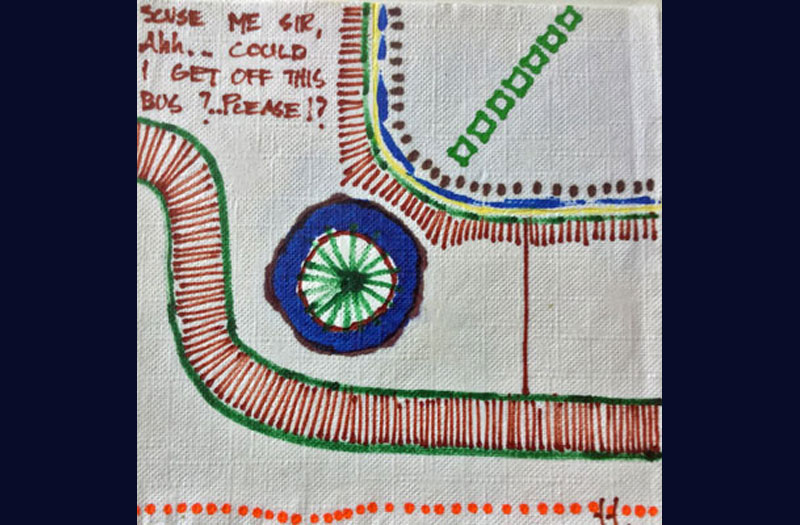you’re either on the bus or off the bus
Ken Kesey
Back when I was in high school more than a half-century ago, I was chosen to participate in a contest sponsored by Bank of America. About twenty or so high school students were chosen from high schools in Northern California. We were charged with reading E. M. Forster’s short story The Machine Stops after which everyone met to discuss the story and answer questions posed by a group of judges. First, second and third prizes were $100, $50 and $25. I won second prize. Perhaps that’s why I never forgot the event or the story.
While The Machine Stops was written in 1909, the ideas are timeless and especially relevant today during the time of COVID, global warming and ubiquitous smart phones with social media that increasingly alter our lives. The connections between Forster’s story and our lives today have not gone unnoticed. Not long before he died the neurologist Oliver Sacks wrote a nostalgic piece in The New Yorker: The Machine Stops-A Neurologist On Steam Engines, Smartphones, And Fearing The Future. After lamenting how technology has changed our lives in the ways Forster foresaw, Sacks ended his essay on a positive note daring to hope that we will learn to harness the inventions of science to our benefit. In his essay Sacks expressed our mixed feelings today with regard to progress notwithstanding Ronald Reagan’s famous advertising line: “at General Electric progress is our most important product.” Progress is undoubtedly important and it brings benefits. But, progress can be unsettling and also bring risks.
Nonetheless, I dare to hope that, despite everything, human life and its richness of cultures will survive, even on a ravaged earth. While some see art as a bulwark of our collective memory, I see science, with its depth of thought, its palpable achievements and potentials, as equally important; and science, good science, is flourishing as never before, though it moves cautiously and slowly, its insights checked by continual self-testing and experimentation. I revere good writing and art and music, but it seems to me that only science, aided by human decency, common sense, farsightedness, and concern for the unfortunate and the poor, offers the world any hope in its present morass. This idea is explicit in Pope Francis’s encyclical and may be practiced not only with vast, centralized technologies but by workers, artisans, and farmers in the villages of the world. Between us, we can surely pull the world through its present crises and lead the way to a happier time ahead. As I face my own impending departure from the world, I have to believe in this—that mankind and our planet will survive, that life will continue, and that this will not be our final hour.
… Oliver Sacks
To cut to the chase, due to COVID we are languishing in our solitude (for some malcontents that could be a plus, think of The Artist at Work by Albert Camus). At the same time, the world outside is becoming uninhabitable due to global warming. The cure, technology, may be worse than the disease as we witness the dehumanizing aspects of and division resulting from social media.
These are all themes in Forster’s story. As Oscar Wilde wrote: Life imitates Art far more than Art imitates Life. For a detailed discussion and links to Forster’s story check out Quarantine Reading: The Machine Stops by L.M. Sacasas over at The Convivial Society. Little did I know all those years ago when I won my fifty bucks that the lessons I learned from Forster’s story would be worth far more and that I would use them again and again as life imitated art.


Thanks . . . Interesting reading and I have bookmarked it to re read later.
I want to research its background and the author . . . etc . . . .
Also as another note I suggest that it not be necessary to reenter all the below information every time. On the second, third, fourth etc visit why not just have to enter ones name . . . . .